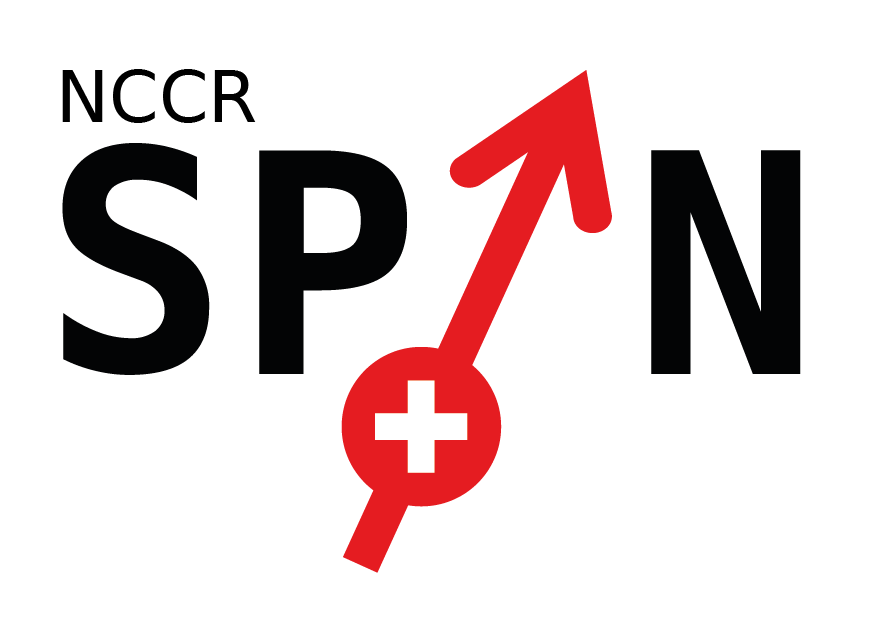
Research Ethics
Publication Ethics and Guidelines
Introduction
This document outlines ethical guidelines and best practices for research publication within the NCCR SPIN community. It is aimed at upholding the highest standards of integrity, transparency, and responsibility in scientific communication.
I. Research integrity and results
• Transparency and Accessibility: Ensure research data and findings are made available in a timely manner, adhering to intellectual property rights and open access mandates.
• Mandatory Open Data: Require sharing raw and processed data in recognized open data repositories.
• Comprehensive Record-keeping: Maintain thorough and accessible research records to enable future analysis and verification of results.
II. Authorship and contribution
• Criteria for Authorship: Reserve authorship for individuals who have significantly contributed to the research, including concept, design, execution, analysis, or interpretation.
• Acknowledgment of Contributions: Recognize contributions not meeting authorship criteria, such as routine data collection or general supervision, in an acknowledgments section.
• Informed and Agreed Authorship: Ensure all authors are aware of and agree to the manuscript submission, including preprint servers like arXiv.
• Ongoing Communication on arXiv Submissions: Maintain continuous communication among all authors regarding the status of publications on platforms like arXiv, including updates and revisions.
• Decision and Communication: Ensure consent about manuscript content and coauthorship. Openly discuss and explain co-authorship roles.
• Responsibility and Accountability: Authors must take collective and individual responsibility for their work's integrity, articulating their specific contributions.
III. Open Access and publications
• Mandatory Open Access Publishing: Require publishing in open access journals or making publications available through open access repositories.
• Strict Compliance with Open Access Policies: Adhere to open access requirements of the SNSF, including data.
IV. Plagiarism and ethical writing
• Rigorous Citation and Attribution: Mandate appropriate citation and attribution for all sourced materials.
• Proactive Anti-Plagiarism Measures: Implement tools and practices to detect and prevent plagiarism.
V. Avoidance of predatory journals and compliance with funding policies
• Journal Assessment and Verification: Carefully evaluate the credibility of journals before submission and avoid predatory journals.
• Adherence to SNSF Policies: Align with the SNSF's policies on publishing in reputable journals and non-coverage of publication costs in Special Issues.
Commitment to excellence and integrity
Adherence to these guidelines is mandatory to ensure the integrity and quality of research within the NCCR SPIN community. Authors are expected to conduct their research and publications with honesty, transparency, and a commitment to the principles of open science.
Approved by the NCCR SPIN Executive Committee on 3 July 2024
NCCR SPIN acknowledgment
All publications resulting from research funded by the NCCR should include the acknowledgment of NCCR SPIN. Here is the suggested format:
“This work was supported as a part of NCCR SPIN, a National Centre of Competence in Research, funded by the Swiss National Science Foundation (grant number 225153)”
Code of Conduct
A core principle of the mission, vision, and values of NCCR SPIN is creating a physics community that fosters diversity, equity, and inclusion; A diversity of views, backgrounds, and opinions supports scientific creativity and productivity. Therefore, creating a climate that encourages growth and facilitates the inclusion of everyone associated with our SPIN network’s activities is a high priority.
To create a collegial, inclusive, and professional environment, SPIN network members will treat each other with respect and consideration.
SPIN network members will avoid any inappropriate actions or statements based on individual characteristics such as age, race, ethnicity, sexual orientation, gender identity, gender expression, marital status, nationality, political affiliation, ability status, religion or educational background or any other characteristic protected by law.
Disruptive or harassing behavior of any kind will not be tolerated. Harassment includes but is not limited to inappropriate or intimidating behavior and language (and body language), unwelcome jokes or comments, unwanted touching or attention, bullying, offensive images, and stalking.
This Code of Conduct shall be a supplement to the Codes of Conduct of the institutions in the SPIN network.
Violations of this code of conduct policy should be reported to one of the members of the board of the NCCR SPIN Directors listed below:
Jelena Klinovaja
Maria Longobardi
Daniel Loss
Heike Riel
Dominik Zumbuhl
Approved by the NCCR SPIN Executive Committee on 14 July 2022
